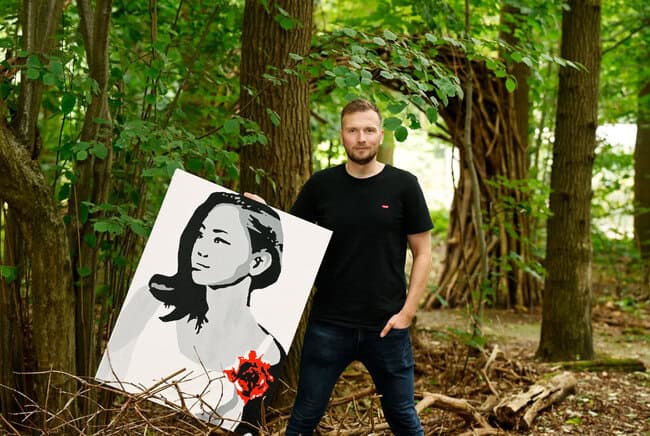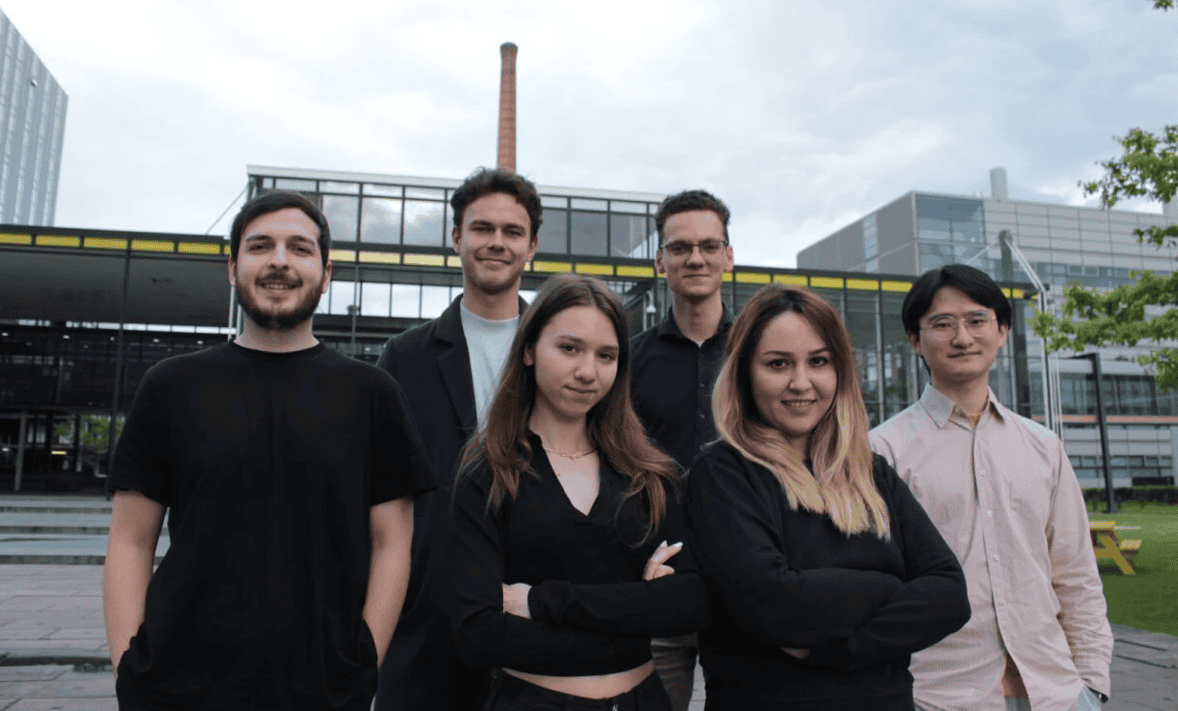
“Through the Climars app, we want to use so-called challenges to encourage people to make more sustainable choices,” says Bojana Zoranovic, co-founder of Climars. When downloading the app, the user gets a number of multiple-choice questions about e.g. eating habits, transportation choices, and shopping behavior. Based on these, the app calculates how many planets that person would need to maintain their personal lifestyle. “That’s the starting point for the challenges that help change habits step by step,” Zoranovic explains. Each user starts off with a general challenge that covers a variety of topics. After that, a person can choose what they want to try out.
The themes range from cutting down on waste to not eating meat to not buying environmentally unfriendly clothing. “The app aims to help people on their way who do want to live more sustainably,” says Zoranovic. “People often don’t know where to start. Or they find it difficult to maintain a new lifestyle. Besides that, people are also sometimes skeptical about the impact they can make on the environmental issues that we are now facing, either as individuals or as part of a family.”
Saving turtles
Zoranovic took this all into account during the development of the app. “By calculating your own ecological footprint, you immediately see what you as an individual actually contribute. At the end of a challenge, people will see the impact they have made in those three weeks. Not only do we show the reductions in CO2 emissions, but we also make that tangible. For one thing, after doing the waste challenge, you’ll see how many turtles you have managed to save because you didn’t dump plastic in the ocean.”
In addition, the participants also receive a reward for a certain number of points. “For instance, after completing the challenge to eat vegan, players can pick up a tasty vegan pastry from a local baker,” she adds. “This is how we motivate users and involve local, sustainable entrepreneurs in this concept.”
We hope that the challenges will help people to change their habits step by step. What’s more, we make it fun and playful this way,” she continues. The choice for 21-day challenges is scientifically based. “Research has shown that that’s long enough to effectively get used to certain behaviors. But on the other hand, it’s also short enough to keep these up as well. A reward helps people get more enjoyment and satisfaction out of their results. This way, they also get to know new people and local businesses.”
Dutch sustainability support fund awards prize during TU/e Contest
Climars won €5, 000 during the TU/e Contest. Which is an innovation competition for students of the Technical University of Eindhoven (TU/e). The prize was awarded by the Dutch Steunfonds Duurzaamheid (Sustainability Support Fund). Start-ups with a good idea for promoting sustainability may apply. In addition, the support fund awards prizes through various competitions held by knowledge institutes, such as the TU/e Contest.
Bojana Zoranovic of Climars: “We believe in the necessity of leading a sustainable life and have confidence in solutions that set out to accomplish this. As a start-up, we are defined by our huge ambitions and limited resources, which we enthusiastically put our time and energy into. The prize offered to us by the Steunfonds Duurzaamheid is an enormous boost for us to further shape our ambitions. An extra incentive to push ahead with our mission!”
Impact
Saartje Janssen, chair of the Duurzaamheid Steunfonds, explains that the support fund centers on three criteria. An initiative must have sustainability as its guiding principle, it must have an impact on a large group of people and it must have an educational element. “During the TU/e Contest, the board unanimously voted for Climars,” Janssen states. “The students are working on their app with a great deal of passion. Their mission fits in perfectly with that of the support fund.”
The fund has been formally active since last year. The first projects are awarded with a cash prize at the moment. “We are facing major challenges in the area of sustainability. Students and start-ups come up with ideas that we are not so quick in coming up with. That’s fantastic to see. We want to give them a chance to further develop their ideas and put these into practice.
Back to nature
In the meantime, the team behind Climars nowadays makes up four people. “It all started with a long trip that Michael and I made through New Zealand,” says Zoranovic. “We spent a lot of time in nature reserves far away from any cities. As a result, we became more and more connected to nature. We saw how great an impact people have on nature there, even when there are no other big cities close by.” That made them think. “We began to make small adjustments in our lifestyle because of that insight. For instance, we’ve started eating vegetarian and we’re trying to scale down our waste stream.”
Through the app, they hope to pass on these insights to other people as well. Climars is to be launched on the grounds of the Erasmus University in Rotterdam this autumn. “This is a kind of pilot project where we also want to collect reactions from users, for one thing,” declares Zoranovic. Then they plan to launch the app on the campus of the Technical University of Eindhoven. “Of course, ultimately the aim is that everyone in the Netherlands can use it.”








